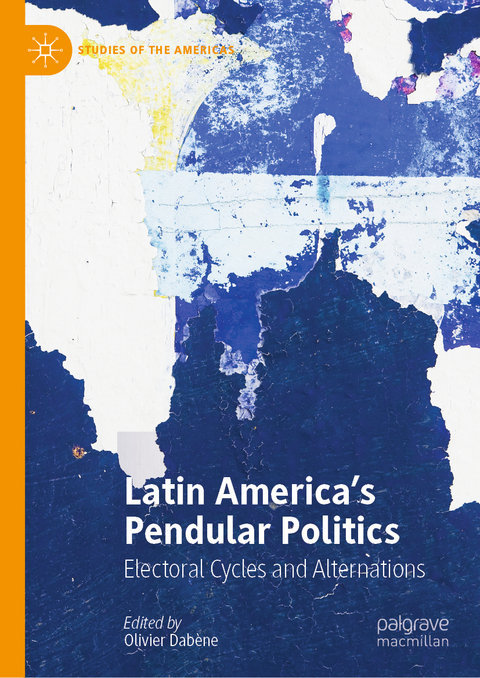
Latin America’s Pendular Politics
Springer International Publishing (Verlag)
978-3-031-26760-4 (ISBN)
The reference to a right/left/right/left sequence over a period of thirty years undoubtedly accounts for a singular pendulum pattern yet proves to be excessively simplistic. The right/left dichotomy hides fractures and nuances that characterize each political camp.
This book seeks to explain why some elections result in alternations and others do not. Based on an innovative theoretical framework and a unique collection of case studies, the book offers a rich understanding of Latin America's contemporary political evolutions.
Voters are getting accustomed to punishing incumbents for not delivering in time of crises, resulting in frequent alternations. It might be good for democracy, not so much for governability.
Olivier Dabène is Professor of Political Science at the Paris Institute of Political Studies (Sciences Po) and Senior Researcher at the Center for International Studies (CERI, Sciences Po), France. He is also the President of the Political Observatory of Latin America and the Caribbean (www.sciencespo.fr/opalc) and Visiting Professor in many Latin American universities.
Chapter 1: Introduction. Electoral cycles, continuity and change in Latin American politics. A framework for analysis.- Part 1: Conservative alternations.- Chapter 2: New political cycle in Chile: from centrist consensus to the struggle for cultural hegemony.- Chapter 3: Step right or step ahead? Explaining the 2019 presidential swing in Uruguay.- Chapter 4: Radicalization of alternation: political change and degraded democracy in El Salvador (2019-2021).- Chapter 5: Guatemala, an alternation in continuity.- Chapter 6: The return of the divided rights. Alternations in Peru.- Part 2: Progressist alternations.- Chapter 7: Polarization, depolarization and (re)polarization. The 2019 electoral process and a new alternation in Argentine democracy.- Chapter 8: Mexico's 2018 Tsunami-alternation: change and continuities following the collapse of the transitional three-party system.- Chapter 9: Panama: alternation inside the box.- Part 3: Conservative alternations following a destitution.- Chapter 10: Brazil 2016-2018: a double political alternation.- Chapter 11: The 2019 elections in Bolivia.- Part 4: Partial alternations.- Chapter 12: Colombia: the country where peace allowed political alternation.- Chapter 13: Paraguay 2018. A country of electoral "intralternation".- Chapter 14: Costa Rica's 2018 and 2020 elections: a partial alternation and a conservative turn.- Part 5: Electoral authoritarianism.- Chapter 15: The Sandinista order. Changes in voting procedures and authoritarianism in Nicaragua.- Chapter 16: Venezuela: the authoritarian and conservative turn of Nicolás Maduro.- Chapter 17: From competitive authoritarianism to state capture: a contested re-election in Honduras (2017).
| Erscheinungsdatum | 24.03.2023 |
|---|---|
| Reihe/Serie | Studies of the Americas |
| Zusatzinfo | XXV, 382 p. 36 illus., 35 illus. in color. |
| Verlagsort | Cham |
| Sprache | englisch |
| Maße | 148 x 210 mm |
| Gewicht | 652 g |
| Themenwelt | Sozialwissenschaften ► Politik / Verwaltung ► Europäische / Internationale Politik |
| Sozialwissenschaften ► Politik / Verwaltung ► Vergleichende Politikwissenschaften | |
| Wirtschaft ► Volkswirtschaftslehre ► Wirtschaftspolitik | |
| Schlagworte | Democracy • Election • Latin America • Pendular politics • turn to the left • turn to the right |
| ISBN-10 | 3-031-26760-5 / 3031267605 |
| ISBN-13 | 978-3-031-26760-4 / 9783031267604 |
| Zustand | Neuware |
| Haben Sie eine Frage zum Produkt? |
aus dem Bereich


